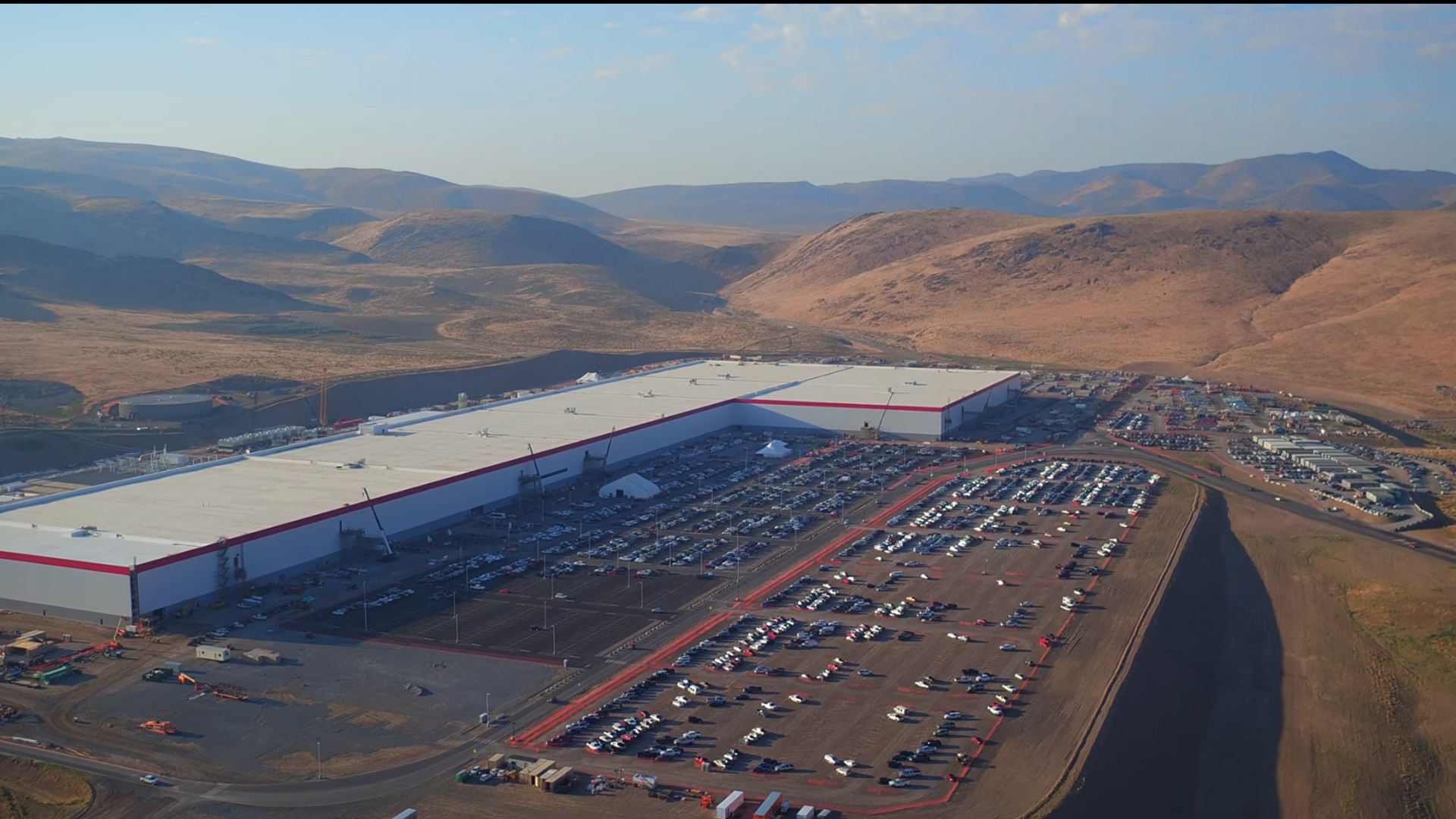

Tesla and battery manufacturer Panasonic will freeze investments into the automaker’s Nevada-based battery plant over weakening demand concerns, reports Japanese publication Nikkei.
Both the automaker and Panasonic had reportedly considered raising production capacity by more than 54 percent by 2020 (from 35-gigawatt hours to 54 GWh), however, due to apprehension surrounding financial and demand problems, the partners will not proceed with the expansion as planned, halting further construction of the Gigafactory barring further consideration.
Tesla shares have fallen as much as 4.7 percent during pre-market trading.
Inside of the Gigafactory exists two operations: battery cell production and battery assembly. Panasonic has been producing 2170 battery cells for Tesla’s Model 3 since 2017 in one area of the factory; Tesla then packages the battery cells inside of its packs and ships the units off to the automaker’s assembly plant in Fremont, California.
The sudden change of heart could be due to concerns over dwindling demand following a troubling first quarter in 2019. Tesla’s sales slump of more than 30 percent raised questionable brows as the automaker fought to deliver cars overseas in meaningful numbers amid both markets’ regulatory and logistic adjustments. But for investors, the decline was an indicator of demand drop off, something with CEO Elon Musk had previously identified as being inhibited by the high upfront cost of electric cars.
“It’s important to appreciate that the demand for Model 3 is insanely high. The inhibitor is affordability,” said Tesla CEO Elon Musk during the automaker’s Q4 2018 earnings call. “It’s just like people literally don’t have the money to buy the car. It’s got nothing to do with desire. They just don’t have enough money in their bank account. If the car can be made more affordable, the demand is extraordinary.”
Tesla responded in late February by releasing two new trims of its Model 3, the long-awaited $35,000 Standard Range variant, and a slightly more premium Standard Range Plus. At present time, it is not believed that any $35,000 Model 3s have actually been delivered despite its release 42 days ago. Deliveries were initially said to begin between 14 and 28 days following the vehicle’s release.
In late 2018, Panasonic was considering an investment of between $900 million and $1.35 billion for the Gigfactory’s expansion, yet, six months later it has reportedly reconsidered its funding. The Gigafactory, according to Tesla, is only 30 percent complete at its current development.
“Both Tesla and Panasonic continue to invest substantial funds into Gigafactory. That said, we believe there is far more output to be gained from improving existing production equipment than was previously estimated. We are seeing significant gains from upgrading existing lines to increase output, which allows Tesla and Panasonic to achieve the same output with less spent on new equipment purchases,” a Tesla Spokesperson told The Drive.
“However, we will of course continue to make new investments in Gigafactory 1, as needed. Most importantly, contrary to what is implied in this report, our demand for cells continues to outpace supply. It remains the fundamental constraint on Tesla vehicle and Powerwall/Powerpack production.”
Furthermore, Tesla had initially planned to produce its upcoming Model Y crossover at Gigafactory 1 in Nevada. It’s unclear what the halt in expansion means for the change in the production facility, however, without expansion, there is likely no additional production line for the Model Y at the facility.
Another surprise twist is Panasonic’s reported decision to also suspend its investment into Tesla’s brand new Gigafactory in Shanghai, a newly penned facility of which construction has not yet completed. According to Nikkei, Panasonic will provide Tesla with technical support and a “small number” of batteries produced locally at the China-based Gigafactory.
Contrary to the report, Panasonic had not publicly announced an investment in Gigafactory Shanghai previously. Reports from earlier this year indicated that Tesla was testing the waters with several battery manufacturers for the contact with its Shanghai facility; as of today, there has been no release stating that a vendor had been selected. Nikkei continues its reporting by stating that Tesla will reportedly source batteries “from a number of makers” for its local-market cars moving forward.